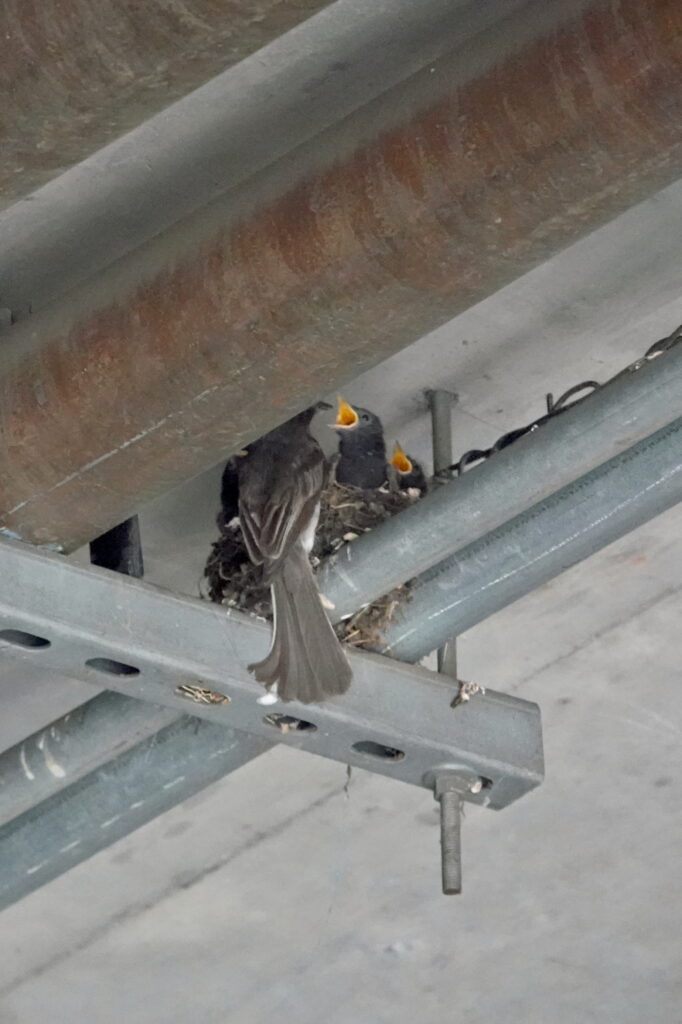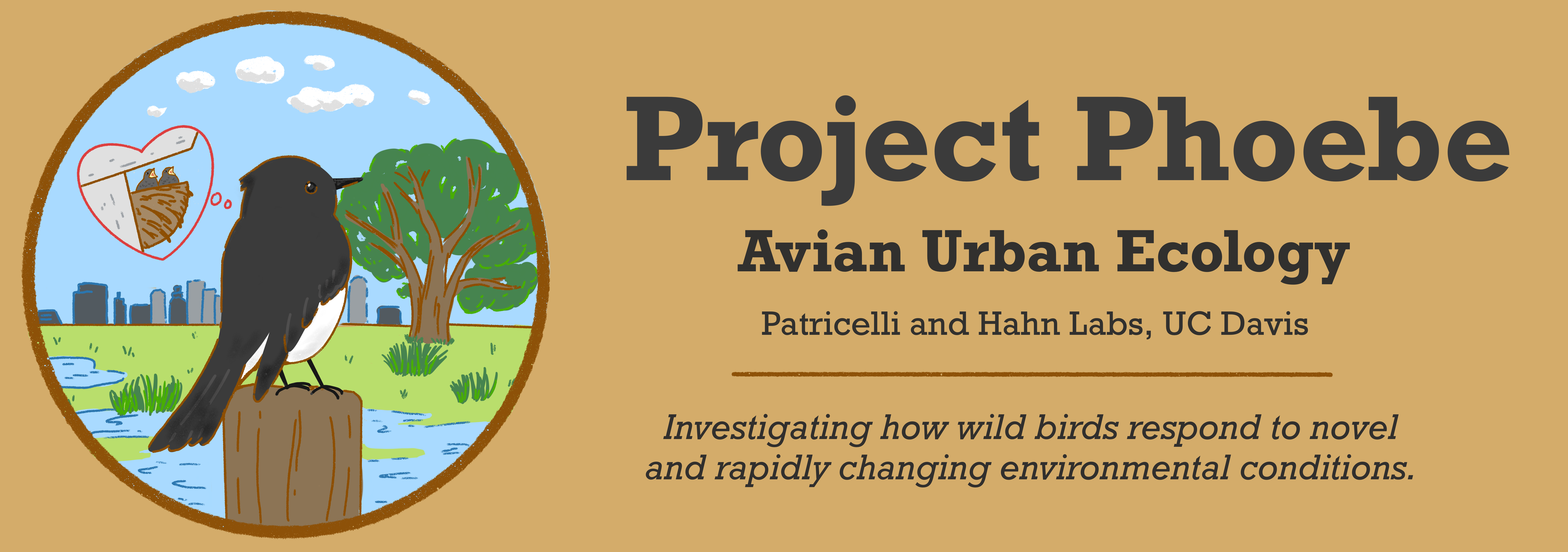Welcome!
Project Phoebe is an urban ecology research project designed and run by several graduate students at the University of California Davis–Sage Madden, Jacob Johnson, Monica Sandri, and Ian Haliburton–and supervised by Professors Gail Patricelli and Thomas Hahn. We are studying Black Phoebes in the California Central Valley to learn more about how birds and other animals respond to urbanization and other forms of environmental change.
More to Explore
Want to learn more about Project Phoebe? You can find more details about our project goals on the What we Hope to Learn page and where we work on the Where we Work page. Visit The Project Phoebe Team page to learn more about our team members.
Curious about urban animals and why we and other ecologists study them? Check out the About Urban Ecology and the Urban Field Guide sections.
Looking for additional resources to learn about birds, attract them to your yard, or help scientists study them? Check out the Urban Eco Resources page.
Questions? Concerns? Want to chat about science and urban birds? Head to the Contact Us page and feel free to get in touch!



All opinions on this website are those of the Project Phoebe team leads, not necessarily the University of California Davis, our funding sources or the parks where we work.
Additional Collaborators
Alejandro Martinez Vela, Riya Anilkumar, and Matt Kirby are collaborating on a study of Phoebe nest design from a civil engineering perspective.
Mary Maret, KC Sorgen, and Emily Tozzi are collaborating on experimental placement of supplemental nesting shelves for Black Phoebes along the American River Parkway.
Thank you
We would like to thank the Patricelli, Hahn, Safran (at University of Colorado Boulder), and Karp labs for their advice and feedback on the Project Phoebe research. Additionally, we would like to thank the homeowners, cities, and land managers who graciously let us monitor Phoebes on their properties. Species thanks to the field assistants who helped collect data in 2023, 2024, and 2025: Aidan Reynolds, Alia Tu, Andrew Bousfield, Aziza Carrillo, Cameron Lusk, Clay Jones, Farah Mustafa, Finn Vaelisaris, James Rodriguez, Jih-Heng Huang, Joana Rose, Jyotsna Jha, Haley Van Sloten, Lee Howell, Parker Milligan, and Siiri Hamberg. Thank you to Jocelyn Martinez, who assisted with civil engineering analyses of nest samples, and to the Center for Geotechincal Monitoring, who provided equipment necessary for our study of nest design (NSF award CMMI-1520581). Thank you to Emily Phillips, Jessica Schlarbaum, and Katherine Lauck for the camera design and the cameras we used to record Phoebe nests in the field. Finally, thanks to Project Phoebe’s funding sources: NSF Graduate Research Fellowship (SM, see below), UCD Graduate Group in Ecology (SM), UCD Academic Senate (AR, RA, GP, IH, SM), UCD Center for Citizen and Community Science (SM), Animal Behavior Society (SM), American Ornithological Society (SM), American Philosophical Society (SM), Society for the Study of Evolution (SM), Yolo Bird Alliance (IH, AT, FV, SM, MS, SH), Central Valley Bird Club (SM), Sacramento Audubon Society (IH, SM), Western Field Ornithologists (SM, MS), and the UCD Lloyd W. Swift Endowment Fund and EVE Scholars Program (salary support for various undergraduates).
This material is based upon work supported by the National Science Foundation Graduate Research Fellowship Program under Grant No. (2036201). Any opinions, findings, and conclusions or recommendations expressed in this material are those of the author(s) and do not necessarily reflect the views of the National Science Foundation.
Land Acknowledgement
University of California Davis has a formal land acknowledgement which recognizes and pays respect to the indigenous people who once lived where the University stands today. This land acknowledgement was written by Yocha Dehe Wintun Nation and was approved by three Patwin tribes who inhabit(ed) the land. It reads as follows.
We should take a moment to acknowledge the land on which we are gathered. For thousands of years, this land has been the home of Patwin people. Today, there are three federally recognized Patwin tribes: Cachil DeHe Band of Wintun Indians of the Colusa Indian Community, Kletsel Dehe Wintun Nation, and Yocha Dehe Wintun Nation.
The Patwin people have remained committed to the stewardship of this land over many centuries. It has been cherished and protected, as elders have instructed the young through generations. We are honored and grateful to be here today on their traditional lands.

